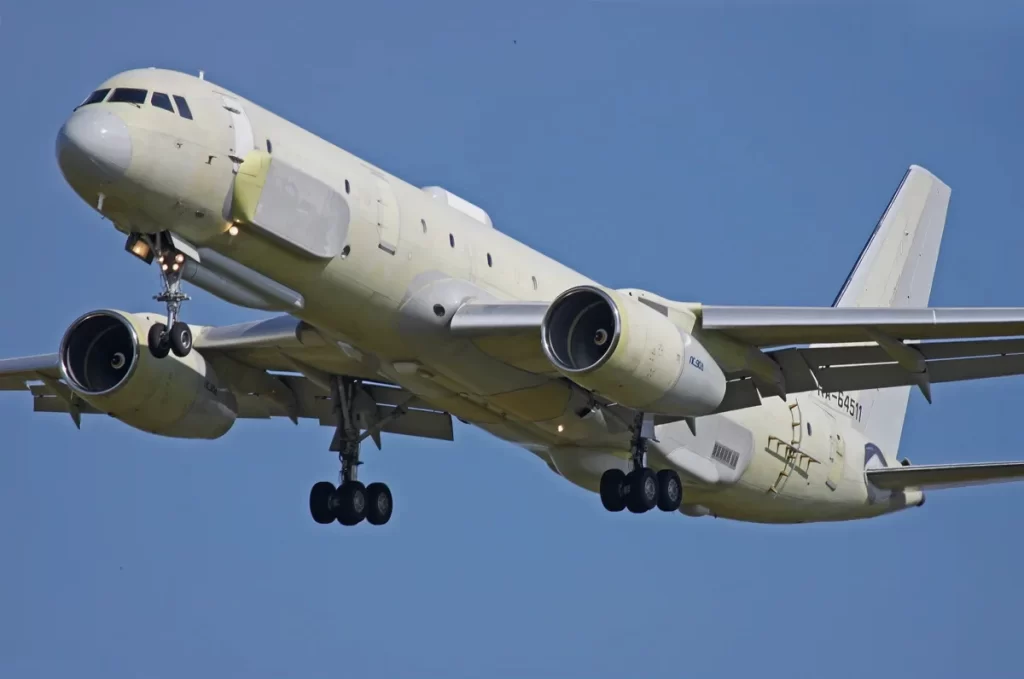Russia’s domestic civil aviation industry has been significantly bolstered by the Tupolev Tu-204 and Tu-214, particularly in light of the ongoing Western sanctions, as the nation attempts to decrease its dependence on foreign-built aircraft. The renewed importance of these aircraft is underscored by recent government funding, production ramp-ups, and their growing use by airlines such as Red Wings.
The United Aircraft Corporation (UAC) was allocated additional resources for the modernization of the Tu-214 and the development of the MS-21-310 in June 2025 by the State Duma, which authorized amendments to the federal budget. Specifically, 400 million rubles have been allocated to the upgrade of communication components on special-purpose Tu-214 aircraft owned by the Russian state.
These investments emphasize Russia’s dedication to the operational relevance of its main aircraft types and the advancement of its aviation technology. Since 2022, the Tu-214 has acquired strategic significance as a cornerstone of the nation’s policy for substituting aviation imports.
Fly-by-wire controls and a glass cockpit are among the latest innovations of the Tu-204, which was developed in the late 1980s to replace the Tu-154. It typically has a range of 4,200–5,920 kilometers and can accommodate 164–215 passengers. Production commenced in the 1990s at the Aviastar-SP facility in Ulyanovsk, and subsequent manufacturing was conducted at the Kazan Aircraft Production Association (KAPO).
The Tu-214 is a direct evolution of the Tu-204, which was first flown in 1996 and assembled in Kazan. It has an extended range of up to 6,700 kilometers and is capable of transporting up to 210 passengers. It is propelled by PS-90 engines. The Tu-214 is well-suited for special mission and government roles due to its unique door configuration, additional fuel containers, and increased maximum takeoff weight.
Red Wings Airlines has become a significant operator of the Tu-204 and Tu-214, actively restoring and deploying these aircraft on both domestic and international routes. Red Wings acquired a restored Tu-214 (RA-64518) in December 2023. The aircraft had been in storage since 2009 and was originally delivered to Transaero. The aircraft was recertified for commercial service after being modernized with a new compartment that accommodates 194 passengers in a single-class configuration. Red Wings commenced operations of the Tu-214 on routes including Moscow-Yerevan, Batumi, and Tel Aviv, thereby doubling the capacity of its Superjet 100s and enabling substantial increases in passenger volumes.
The airline’s experience with the Tu-204 is similarly noteworthy. The Red Wings airline included a Tu-204-100B (RA-64043) in its fleet in March 2024. The aircraft had been in operation by the airline from 2008 to 2018. The aircraft resumed commercial service on routes such as Moscow-Batumi following restoration and technical tests. The Tu-204 is well-suited for Red Wings’ expanding network, as it can travel up to 3,600 kilometers when fully loaded.
Some Tu-204 aircraft that were previously manufactured in Ulyanovsk are currently being restored at the Kazan Aviation Plant (KAZ). The facility can refurbish a maximum of six aircraft for Red Wings airline.

Red Wings presently operates one aircraft from the Tu-214 series, which was manufactured in 2009 and was previously owned by Transaero until 2015. Domestically produced replacement components and systems are currently being tested on a second Transaero aircraft, which was manufactured in 2006. The airline will receive the aircraft in the near future.
The Tu-214, which was manufactured in 2008, is currently being restored by KAZ and may also be transferred to Red Wings. An additional three Tu-214s are currently in storage. Preliminary evaluations suggest that they are in very poor condition and may not be economically viable to restore.
Red Wings’ strategic response to Western sanctions involves the addition of Tu-204 and Tu-214 aircraft to its fleet, which allows the airline to carry more passengers over longer distances and reduce its dependence on foreign leasing arrangements. Operational data and feedback from Red Wings are shared with UAC to enhance future aircraft, and the Tu-214 is particularly commended for its reliability, efficiency, and simplicity of maintenance.
Kazan is currently in the process of significantly increasing its production capacity for the Tu-214 in order to achieve a production rate of 20 aircraft per year by 2027. New manufacturing equipment and assembly infrastructure investments are used to facilitate this scale-up. The restored and newly built Tu-204 and Tu-214 aircraft are considered optimal solutions for Russian carriers that are encountering restrictions on Western aircraft and materials. The Tu-214’s capacity and range render it particularly appealing for routes that were previously served by smaller aircraft.
Russia’s future civil aviation fleet is anchored by the Tu-214, the MC-21-310, and the SJ-100. Despite the criticism it has received for its relatively dated design and three-member flight crew requirement, the aircraft’s robust construction, proven reliability, and capacity to integrate Russian-made systems render it a practical solution for current requirements. The objective of ongoing modernization, which encompasses the most recent enhancements to communication systems, is to enhance efficiency and resolve legacy issues.
Russia’s aspirations for a modern, self-sufficient civil aviation fleet have been significantly influenced by the Tu-204 and Tu-214. For years to come, these aircraft are expected to be essential to Russian aviation, thanks to new government funding, ongoing modernization, and increased production. The practical value and increasing relevance of the Tu-204 and Tu-214 in a challenging geopolitical environment are underscored by Red Wings’ active use and restoration of both models, ensuring that they remain at the vanguard of Russia’s domestic aviation revival.
Official Website of Youtube Channel – Altitude Addicts

